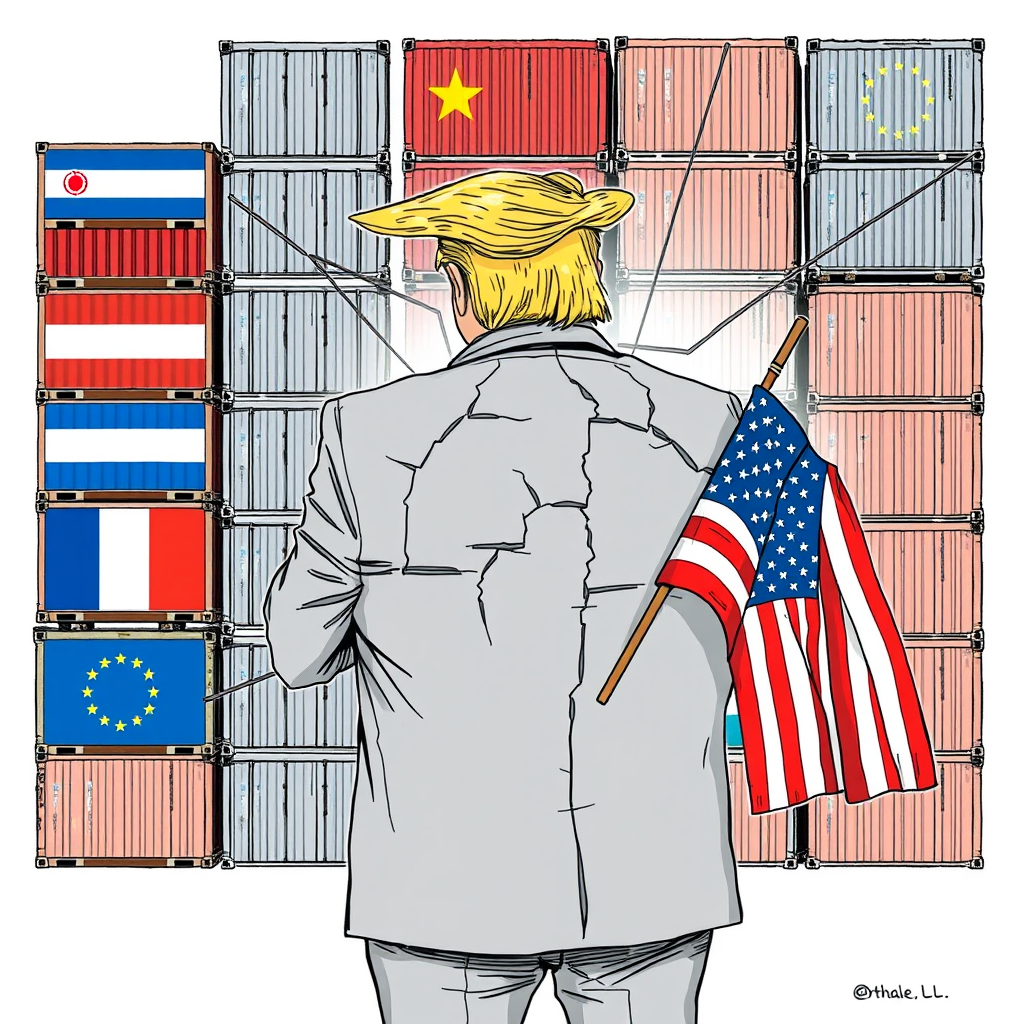Trump's Trade War: Cornered and Facing Disaster?

President Donald Trump’s unwavering stance on trade is increasingly isolating the United States and potentially steering the economy toward a damaging outcome, according to CNN analyst Stephen Collinson. Collinson argues that Trump has strategically positioned himself with no clear exit strategy from escalating trade disputes, impacting not only economic stability but potentially broader policy areas.
The core issue, as Collinson details, isn’t simply about tariffs, but Trump’s fundamental disagreement with established economic principles. He insists on the elimination of trade deficits as a prerequisite for any tariff reductions – a demand that clashes with conventional economic wisdom and the advice of experts. This rigidity makes meaningful negotiation with trade partners exceedingly difficult.
Recent interactions highlight this impasse. Offers from Israel, Vietnam, and the European Union to eliminate tariffs were dismissed by Trump, who maintains they were still “taking advantage” of the United States. This stance was underscored during a recent Oval Office meeting with Israeli Prime Minister Benjamin Netanyahu, where Trump, while acknowledging significant US aid to Israel – approximately $4 billion annually – implied that this aid should preclude any expectation of tariff relief.
Collinson’s analysis suggests a troubling pattern: a president who believes in unchecked power and operates outside conventional constraints is unlikely to seek compromise. This isn’t merely an economic issue, he contends, pointing to Trump’s broader, expansionist ambitions – exemplified by his interest in Greenland and Canada – alongside controversial policies like mass deportations and cultural warfare.
Frankly, the situation appears precarious. While Trump’s supporters may view his hardline approach as strength, the reality is that alienating key allies and disregarding established economic principles carries significant risk. The insistence on unrealistic preconditions for trade negotiations, coupled with a refusal to acknowledge the benefits of free trade, is a recipe for economic stagnation and international isolation. It’s a dangerous game, and the American economy – and potentially global stability – may ultimately pay the price for Trump’s intransigence.